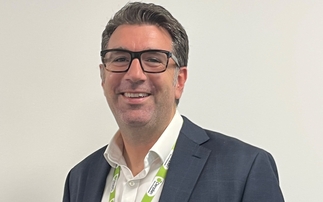Healthcare cash plans may be no match for PMI, but for clients on a budget they are worth a second look, says Jeremy Chadwick
Since their origination in Victorian times healthcare cash plans have been a popular form of health insurance, albeit primarily for lower-paid workers. They remain a popular way to help with absence for both individuals and employers.
With recent media publicity about the continuing rise in the cost of private medical insurance (PMI) and the continuing change in NHS provision, it is not just employers with limited budgets, or employees on low salaries who are turning to cash plans. Although affordability remains key to their success, the popularity of cash plans does not begin and end with money - it is also about usability and perceived value.
Increasingly, when structuring benefits packages, employers are looking for affordable health cover, which their employees will be able to use to promote good health. This not only helps reduce absence, but it also maximises the perceived value to employees. With industry statistics indicating cash plans are used 15 times as often as PMI, it is not hard to see their appeal.
With many cash plan providers reporting real growth, the drivers for this are both from the top, helping organisations save money and from the ground up, enabling employees to make the most of their benefits. It is therefore worthwhile for advisers to take a closer look at this undersold product.
Healthcare essentials
Cash plans provide cash payments towards the cost of a comprehensive range of everyday healthcare essentials. Typically, they provide towards the cost of primary care such as dental treatment, sight tests, glasses and contact lenses, chiropractic and other forms of complementary therapy. Specialist consultation is also covered plus payments for hospital stays and day-case admissions. It is important to stress, however, that healthcare cash plans are not PMI policies. They do not cover all the costs incurred if you need medical treatment, but pay out specified cash sums if you need to go into hospital. That may be used to help with anything, for example, from relatives' travel costs to the hospital to childcare bills. Whereas PMI tends to be for a rainy day, cash plans are for the everyday expenses in keeping the family healthy.
The advantages of cash plans are generally as follows:
• Low premiums. Typical prices start from around £1-£2 per week.
• Family cover can be a huge attraction. A monthly contribution can provide cover for the whole family - spouse/partner and as many resident children under 18.
• Most cash plans offer a choice of levels of premiums and cover to suit all budgets.
• Some cash plan providers offer individual plans - there is no need to pay for family cover if it is not required.
• High claiming due to ill health will not be penalised with an increase in contribution rates - claims are limited to contribution ceilings only and the premiums do not increase with age.
• Cash plans pay out whether you have NHS or private treatment. So, in some cases, you'll receive a cash sum even if your treatment was free, such as an inpatient hospital stay in an NHS hospital. The cash sums are paid directly to you, with no restrictions on how to use them.
• Cash plan customers typically claim on average three times a year making policies useable.
• Research has shown immediate direct cost deters 20% of the population from seeking basic healthcare checks, such as visiting the dentist and the optician. Cash plans help towards eliminating this deterrent.
• Cash plans provide access to complementary medicines that may otherwise be inaccessible.
• With cash plans, you do not need authorisation from a GP before getting treatment. For example, immediate self-referral to a physiotherapist where appropriate, can lead to recovery in days for some conditions, with the automatic confidence of knowing the cost will be supported by a cash plan. With no medical referrals system to slow treatment down, immediate treatment is available to benefit both the individual and the employer alike.
• Prevention can often be much better than cure when safe guarding personal health. With a cash plan, the dental and optical cover also offers screening benefits. For example, regular dental check-ups can help ensure early detection of mouth cancer. Regular optical examinations can detect a wide range of problems from diabetes to high blood pressure.
• Health screenings are also available with some cash plans.
• Many cash plans offer a telephone helpline, with help and advice on a range of legal, domestic and counselling issues.
• Cash plans can help with family budgeting - customers seem more aware of the need to make extra provision for their families' wellbeing and cash plans can ease the financial burden when seeking everyday healthcare. In particular, for young families, who may be surviving on one income, the unexpected cost of emergency dental treatment or a course of physiotherapy treatment could be financially crippling, so a cash plan could be a timely and welcome addition. Not to mention the maternity benefit available on many cash plans which is payable on the birth of a child. This one-off grant can be up to a few hundred pounds with some providers - at a time of increased outgoings and a generally reduced family income.
The cash plan market in the past five years has become extremely competitive. There are now more than three million plans in place, covering around eight million individuals. Many providers do not have shareholders, so most of the profit from the business is ploughed back in for the customer's benefit. Any surplus is used to keep future premiums down and increase the benefits for customers plus make donations to medical or related charities. These businesses are typically linked to a strong regional identity which may help cement relationships with some local intermediary players. Other notable sector providers include major intermediary and direct writers into the individual market led by major banks including Lloyds TSB and Barclays and recent entrant Halifax Bank of Scotland Group. Direct regulation by the Financial Services Authority will force additional compliance costs onto the sector, with continued consolidation of the smaller providers a likely result.
Group market
Intermediaries should take note of the advantages of cash plans for organisations. These include:
• Cash plans are useful as a human resources employee healthcare control - absence management, health and safety requirements and EU regulations all have solutions available in cash plans.
• Compared with PMI, cash plans are different in content and application. They provide tangible returns to reflect healthcare maintenance.
• They can effectively complement to PMI. Cash plans are an efficient, simple alternative form of healthcare for an IFA to present as a concept to an employer, particularly for those companies with less to spend on benefits packages. Voluntary membership groups with promotion supported by the employer are an alternative to company-paid schemes where no client budget is available at all, providing advisers with a useful conversion opportunity in later years once healthcare is established on the agenda.
• Sales opportunities are excellent when the intermediary demonstrates the advantages of a company-paid scheme resulting in a high take-up and the customer, company and intermediary benefit.
• Although the majority of corporate business is through an elective payroll deduction facility, industry experts indicate company-paid business is becoming increasingly popular. Cash plans tend to appeal to smaller organisations that wish to provide a reasonable benefits package. Or if they feel they cannot pay the full amount, they can opt to make a partial contribution of, for example, half the premium and the employee tops it up.
To date, the lack of awareness and scepticism regarding cash plans from the intermediary sector is probably due to the low incentives for intermediaries to introduce them. Commissions are relatively low compared to other products, reflecting the low margin not-for-profit ethical stance of the majority of providers.
However, high take-up numbers can still make cash plans adequately rewarding. It should be noted too, however, that providers have typically distributed direct to employer clients, so there has been little appetite to involve intermediaries on the part of insurers.
With the increasing use of fee-based advice by clients, this may be about to change. Indeed, the larger employee benefits consultants already offer cash plans as a standard option to their clients. It is likely other advisers will follow where they have led. Providers will be happier to work with more intermediaries on this basis, particularly to reach to new trade sectors and geographical areas where historical roots have limited their success.
The future opportunity for intermediaries is to hook into the shift in consumer attitude and need. With such untapped demand to meet the changing NHS, combined with ever more stringent 'best advice' requirements it is increasingly appropriate for cash plans to be included in an intermediary's portfolio. This should enable the provision of an appropriate and balanced protection package for clients.
Jeremy Chadwick is group head of PR and communications at HSA
COVER notes
• Unlike PMI, cash plans provide cover for everyday healthcare, such as dental and optical treatment.
• Cash plans can provide budget protection for individuals or act as a low-cost employee benefit for firms.
• As more advisers turn to fee-based advice, it is likely more advisers will be willing to add cash plans to their remit.











